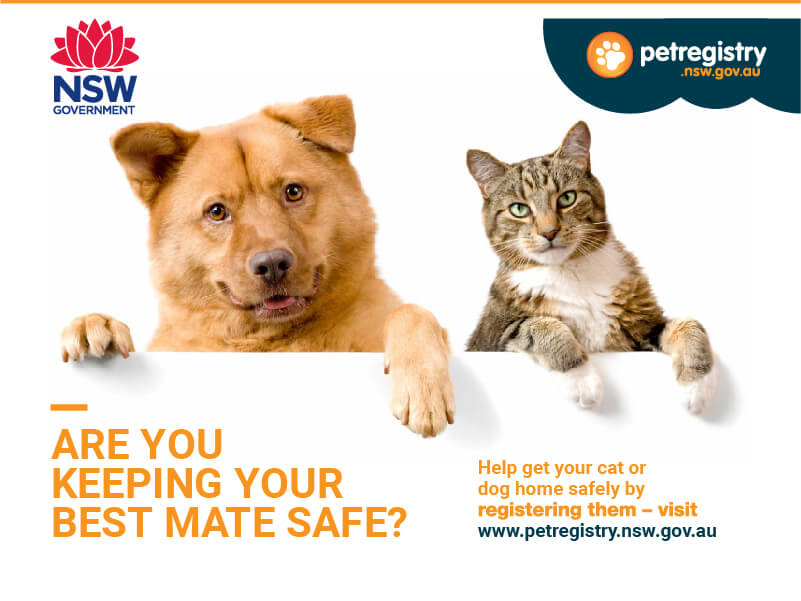Barking
All dogs bark, but some barking dogs become a real neighbourhood nuisance - greatly reducing the quality of life for their neighbours and increasing neighbourhood tensions. Barking dogs is the most common animal behaviour problem Council is asked to deal with. Find out about how to manage barking or make a complaint.
Fences and confinement
A straying dog causes distress to neighbours and the community. Dogs that are not kept safely behind a fence can risk being injured or cause injury to others. As a responsible pet owner, it is important that your fence or dog enclosures is:
- High enough so your dog can't jump over it
- Low enough so your dog can't dig under it
- Strong enough so your dog can't push it over, and
- Hole proof so your dog can't escape through it.
Pet litter
Leaving pet litter in a public place is not only unpleasant and unhealthy, it's against the law. When taking your dog for a walk, be responsible to take your own dog litter bag with you.
Leashes and exercise
Dogs must be leashed at all times in public places to help control them more easily and to increase the safety of other animals and people. Remember that many people are frightened or annoyed by dogs that are not leashed; you should always be considerate of other people. Council provides a number of off leash areas for dogs around the city.
Etiquette
- don’t allow your dog to roam – so keep your fences secure
- don’t bark excessively – so feed your dog regularly, make sure they’re getting enough exercise, and deal with any problems of insecurity or boredom.
- are always on a leash in public places other than designated off-leash areas
- don’t leave poo in public places – so pick it up immediately, bag it and bin it
- don’t behave threateningly – so give them proper training.
Keeping them safe in cars
- Never leave your dog in a parked car. Temperatures inside cars can rise very quickly, even if it is cloudy outside, and you could lose your best mate in just 6 minutes
- Get your dog used to a car. The more confident your pet is in a car, the more comfortable it will be. Start by taking your dog in a car while it is not moving, and then begin taking it on short, slow trips
- Your vehicle must have a properly installed dog restraint. Restraints can help to stop your dog distracting you and reduce the risk of injury in an accident
- Don’t let your dog ride with its head out the window. This can cause eye irritations. Your dog jumping out is also a possibility. Open the window enough so that some air can come in
- A waterproof sheet can come in handy. Carry paper towels and disinfectant in case your dog has a ‘doggy accident’. Consider stopping every couple of hours so your dog can stretch its legs. You will also appreciate the break
- Take your dog for a walk before your journey
- Avoid feeding your dog for a couple of hours before you travel
- Carry your dog’s most loved toy or rug in the car during the trip
- If you are taking your pet with you on a road trip, follow these tips from the RSPCA.
Keeping them cool
Animals (like us) can suffer from heat stress. It is very important on hot days to ensure that your pet has access to water at home. The RSPCA list the following tips to manage heat stress and your pet:
- Have extra bowls of water in case one is tipped over
- Fill a takeaway container with beef/chicken stock, freeze overnight and give to your pet
- Place ice cubes in water bowls. Be careful, as some animals will avoid drinking the water if they are concerned about the floating ice cubes. A good alternative is to freeze half a water bowl the night before and top the remainder up with cool water when putting it out
- Provide extra shade areas in your backyard using shade cloth and umbrellas
- Fill a paddling pool (clams are especially popular) with water and let your pet play in it (under your supervision)
- Always walk your dog in the early morning or late evening to avoid the heat of the day
- Ensure pets have easy access to shade and water throughout the day.
- Spray pet birds with a mist pump spray bottle (only if they like it!) or install a bird bath for supervised use
- Cool a ceramic tile or oven pan in the fridge or freezer and put it out for small dogs and cats to lie on
- For pocket pets, little bags of ice wrapped in small, wet towels provide heat relief
- Allow your outdoor animals to come inside the house and share the air conditioning or electric fan
Road rules
Are you aware of the road rules relating to dogs in vehicles? You could face fines and a loss of demerit points for breaching any of these rules;
- Your dog is causing you to not be in full control of your car
- You are driving with your dog on your lap
- Your dog is unrestrained while riding in the back of a ute
- A driver, motorcycle rider, bike rider or passenger must not lead their dog on a leash while moving. Pets should be located in the appropriate area of a vehicle.
If a dog is injured because it was unrestrained, the owner can face heavy fines and even a jail sentence.
